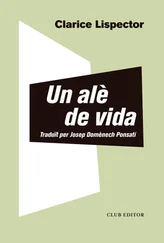In a television interview in February 1977, she confessed: ‘When I am not writing, I am dead.’ She believed that writing could turn a human being into a divinity. And when the words flowed in harmony with thought and feeling, she experienced something akin to ecstasy. She staunchly defended her individual freedom as a writer and insisted: ‘If there exists such a thing as expression, then let it emanate from what I am.’ Appropriately enough, the last item in this collection leaves us with the question which was to haunt her all her life: ‘Could it be that the person who sees most, feels and suffers most?’ That was the price she paid for the rare insights she so memorably expressed.
GIOVANNI PONTIERO
Manchester, May 1991
She was fat, short and freckled and her hair was much too frizzy. Her bust had become enormous while all the rest of us were flat-chested. And as if this were not bad enough, she would fill the top pockets of her blouse with toffees. But she had what any little girl who adored stories would like to have: a father who owned a bookshop.
She did not appear to benefit much from this good fortune; the rest of us even less so. Instead of giving us a little book for our birthday, she would hand us a postcard from her father’s shop. And what is more, with a view of Recife and its bridges, the city where we ourselves lived. On the back she would write words like happy birthday and greetings in fancy lettering.
But there was such a cruel streak in her nature. Making loud noises as she sucked her toffees, she found ways and means of being vindictive. How this little girl must have hated us, we who were unforgivably pretty, slender and tall, with long, smooth hair. She practised her sadism on me with calm ferocity. I was so anxious to borrow books that I did not even notice the humiliations to which she subjected me: I kept on begging her to lend me the books she never bothered to read. Until that glorious day for her when she began to subject me to Chinese torture. She casually informed me that she possessed a copy of As reinaçōes de Narizinho [The Adventures of Little Snotty].
It was a big book, dear God, a book one could live with, eat and sleep with. And well beyond my means. She told me to call at her house the next day and she would lend me the book. Waiting for the following day to come, I became transformed into the very promise of happiness: I was not living, but swimming slowly in tranquil waters.
Next day I went to her house, running all the way. She lived in a house, not in a first-floor apartment like me. She did not ask me in. Looking me straight in the eye, she told me she had loaned the book to another girl and to come back the day after’ to collect it. Dumbfounded, I slowly walked away, but hope soon returned and I began skipping again, a strange habit of mine, as I went through the streets of Recife. This time I did not stumble once: the promise of that book guided me: the next day would soon be here, the following days were to be my whole life and I went skipping through the streets as usual without stumbling even once.
Fine, but there was more to come. The secret plan of the bookseller’s daughter was calculated and diabolical. Next day I was back on her doorstep with a smile, my heart pounding with excitement. Only to hear the calm reply: the book had still not been returned and I was to return the following day. Little did I suspect that, for the rest of my life, this drama of waiting until the following day would recur time and time again while my heart went on pounding.
And so it continued. For how long? I could not say. She knew there could be no definite time before the hatred drained from that thick body of hers. I had already become aware that I was her chosen victim. Sometimes I can sense such things. Yet even though perceiving them, I often resign myself, as if the person who wishes to cause me suffering needs to see me suffer.
For how long? I went to her house every day without fail. Sometimes she would say: I had the book here yesterday but you didn’t come so I loaned it to another girl. And, unusual for me, I began to feel dark circles forming round my startled eyes.
Until finally one day, as I was standing at her door, listening humbly and in silence to her excuses, the girl’s mother appeared. She was obviously puzzled by the strange appearance of this girl who turned up day after day. She questioned both of us. There was silent confusion, interrupted by words which explained little or nothing. The girl’s mother became more and more exasperated. Until the truth finally dawned on her. She turned to her daughter and exclaimed with great surprise: But that book has never left the house and you have shown no interest in reading it! This discovery was bad enough but not nearly as bad as discovering the kind of daughter she had. She looked at us in horror: this perverse daughter whom she scarcely recognized and the little girl standing at the door, weary and exposed to the wind-blown streets of Recife. Then, pulling herself together, she spoke firmly to her daughter without raising her voice: You will lend The Adventures of Narizinho to this child at once. And to me she said the one thing I had never dared hope to hear: ‘And you must keep the book for as long as you like. Is that clear?’ Those words meant more to me than being given the book: for as long as you like is all that anyone, young or old, could possibly wish for.
How can I describe what followed? I was in a daze as I took the book. No, no, I did not go skipping off as usual. I went off, walking very slowly. I know that I was clutching the book in both hands, pressing it to my bosom. How long it took me to reach home is of no consequence. My breast was warm, my mood troubled and pensive.
On arriving home I did not start to read. I pretended not to have the book, so as to postpone the pleasure of discovering I had it. I opened the book some hours later and read some lines, I closed it once more, went wandering through the house, ate some bread and butter to pass the time, pretended I could not remember where I had put the book, found it again, opened it for several moments. I invented the most absurd strategies to postpone that clandestine thing called happiness. I felt proud yet insecure. I was a vulnerable queen.
Sometimes I would sit in the hammock, swinging back and forth in ecstasy, the book lying open on my lap yet never touching it. I was no longer a little girl with a book: I was a woman with her lover.
I still feel a little uncomfortable in my new role which cannot be strictly described as that of a columnist. And besides being a novice in the art of writing chronicles, I am also a novice when it comes to writing in order to earn money. I have had some experience as a professional journalist without ever signing my contributions. By signing my name I automatically become more personal. And I somehow feel as if I were selling my soul. I mentioned this to a friend who agreed: writing is rather like selling one’s soul. It is true. Even when you are not doing it for money, you divulge a great deal about yourself. But a friend of mine who is a doctor disagreed: she argued that she puts body and soul into her work, although she still expects to be paid because she also has to earn a living. So with the greatest pleasure I sell you part of my soul when I converse with you every Saturday.
But my lack of experience in writing a weekly column gets me into a frightful muddle when it comes to choosing suitable topics. I was mulling over this problem when I happened to be visiting a friend. The telephone rang and the caller was a mutual acquaintance. I also had a word with him and naturally mentioned that I was writing a weekly column. I then asked him: ‘Which topics are likely to interest readers? Let’s say to interest the women who read my column?’ Before he could answer, my friend called out from the far end of her large sitting-room: ‘Men, of course.’ We laughed, but her answer is worth considering. I am somewhat ashamed to have to admit that women are mostly interested in men.
Читать дальше












